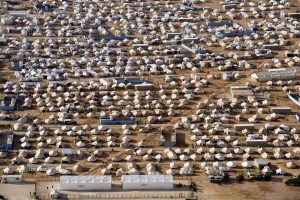Scenario Journal is an online publication focused on the next generation of urban landscapes. From planners looking to model urban growth and achieve better neighborhoods, landscape architects designing hybrid natural systems and urban developments, ecologists taking cities seriously as habitats, architects concerned with building performance and street life, to engineers developing more efficient and more public infrastructure, there are many exciting projects taking shape that promise to improve the way our cities perform.
While multiple professions have shown a renewed interest in the functioning and life of cities, parallel conversations occur within disciplinary silos, with too little cross-pollination across related fields. Scenario seeks to create a free and accessible platform for showcasing conversations across disciplines that spark collaboration, rethink urban landscape performance, and lay down an interdisciplinary theoretical framework for design innovation. Scenario builds on the theoretical foundation of “landscape urbanism,” merging design intelligence and scientific inquiry, to support the continued exploration of this concept and collaborative project.
Scenario brings together work from practitioners, academics and students of landscape, planning, architecture, art, engineering, and environmental science. The journal is committed to striking a balance between rigorous and critical academic pieces, provocative thought pieces, design projects and graphically lush photo essays/artistic work. Scenario Journal is generously supported by the University of Pennsylvania School of Design, the journal’s primary affiliation.
WHY SCENARIO?
In the 20th century, scenario planning emerged as a potent tool for testing potential strategies against unknown and unpredictable futures. First developed based on military strategic planning and wargaming, scenario planning was adopted by corporations interested in long-term trend forecasting, most famously by Royal Dutch Shell in the 1970s. By running multiple narratives within models of future social, political, economic, and environmental conditions, unexpected outcomes could be anticipated and complex feedback loops discovered.
Today, as we strive to adapt our built and natural environment to rapidly changing conditions, scenario planning has a newfound importance for design and planning. The opportunity for acting on complex landscapes with nimble and contingent operations rather than singular and totalizing designs highlights the need for new tools and techniques. Scenario-driven design substitutes the certainty of the masterplan with strategic testing regimes that can respond to alternate and uncertain outcomes. By combining simulation and modeling, scenario-based operations allow us to design with confidence in uncertain terrain.
Contributors
 |  |  |  |
| Eduardo Rega | Bruno DeMeuler | Steven N. Handel | Wim Wambeq |
 |  |  |  |
| Awesome Author | Impressive Name | Some Dude | Author Bestis |
Masthead
Stephanie Carlisle, Co-Editor-in-Chief
Nicholas Pevzner, Co-Editor-in-Chief
Alexandra Lillehei, Research Assistant
University of Pennsylvania School of Design, Academic Partner
BlinkTag Inc., Web Design and Development
Previous Issue Editors
Max Piana, Guest Editor, Scenario 4: Building the Urban Forest
Sarah Peck, Editor, Scenario 1: Landscape Urbanism
Eliza Valk, Editor, Scenario 1: Landscape Urbanism
Previous Research Assistants
Ishaan Kumar, Jeiru He, Colin Curley, Jacqueline Martinez, Autumn Visconti, Anooshey Rahim, Leo Robeleto Costante
HISTORY
Scenario Journal began as the Landscape Urbanism Journal, hosted on LandscapeUrbanism.com, a site dedicated to promoting conversation around new and diverse interpretations of the theory, expression and potential of landscape urbanism and its relevance for the contemporary urban project. LandscapeUrbanism.com was founded by Sarah Kathleen Peck, operated from 2011 until 2013, and won a 2012 ASLA Honor Award in Communication.
A full archive of the first two issues of Landscape Urbanism Journal can be found here.

All essays, comments and other content published in Scenario Journal, remain the property of their authors. While reproduction of more than a reasonable excerpt without the author’s permission is prohibited, by submitting any content to Scenario Journal, authors give Scenario Journal Inc. permission to republish, reprint or exhibit, either online, physically or in print, all such content, including any content derived from author’s pieces.
Scenario Journal has no obligations for the comments posted on its site. Views expressed by authors or other contributors to the site are solely their own and do not necessarily represent the views of Scenario Journal Inc., University of Pennsylvania School of Design or of reviewing editors.